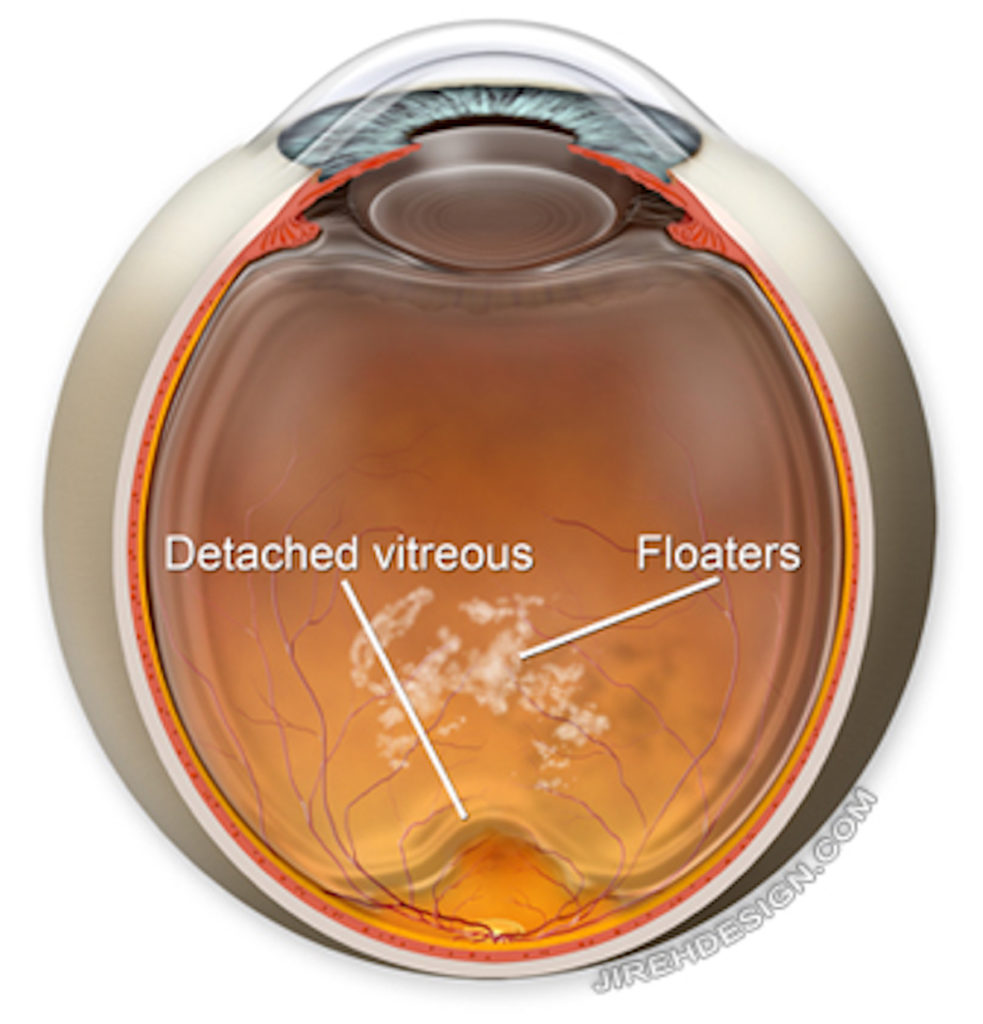Are You at Risk of a PVD?


Flashes and floaters are the most common symptoms of a posterior vitreous detachment (PVD). A PVD can cause a retinal tear. Retinal tears, in turn, can lead to a retinal detachment. Retinal detachments require surgery and can possibly cause blindness.
Everyone will get a posterior vitreous detachment (PVD). The chances of developing a retinal detachment increase with age and other factors.
Symptoms of a PVD
Symptoms of a PVD include the acute (new and sudden) onset of flashes and/or floaters.
During a PVD only the back portion, the posterior part of the vitreous, separates from the surface of the retina. This allows the vitreous to move back and forth inside the eye. These forces stimulate the retina causing flashes.
Floaters develop from cellular debris from underneath the retina (in cases of a retinal tear), blood or from natural opacities which form in the vitreous. The vitreous is formed of protein. As this protein ages, it may not transmit light as effectively as when we are born. We only get one vitreous.
Who gets a PVD?
Most, if not all, of us will develop a PVD in our lifetime. It’s a fact of life.
The vitreous degenerates as we age and does not regenerate. As the vitreous degenerates, pockets of water develop within the vitreous and will actually condense or collapse thereby causing a separation between the posterior vitreous and the retina.
Recent cataract surgery increases the chance of developing a PVD as the intraocular implant used to replace the natural lens is physically smaller and thereby increases the volume of the vitreous cavity – essentially making it easier for the vitreous to separate.
Near-sighted patients also may develop a PVD earlier compared to others as a nearsighted eye is slightly larger in volume than less nearsighted individuals.
Trauma can also lead to a PVD. Blunt trauma, especially in older individuals and near-sighted patients, can lead to a PVD.
With respect to “urgent” and “emergent” situations, alert your doctor or retina specialist if you have new or a sudden increase in flashes, floaters or decreased vision.
Diagnosing a retinal tear is essential to preventing retinal detachment.
